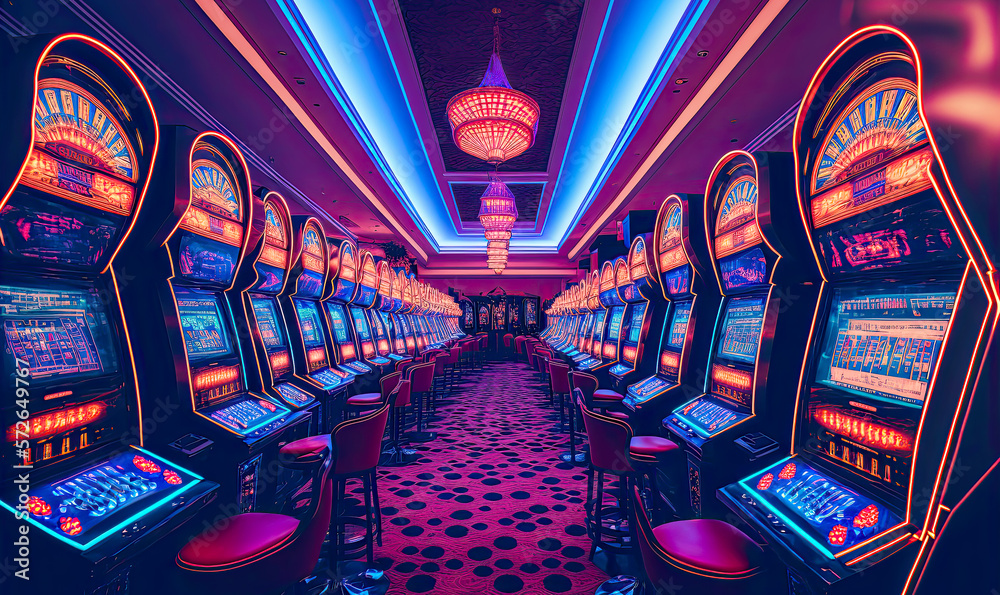
Gambling games have long been an integral part of human culture, providing not just entertainment but a fascinating reflection of our hopes, ambitions, and anxieties. From the spinning reels of a slot machine to the strategic gameplay of poker, these games represent a spectrum of human emotions and incidents. At their core, casino games are not just a chance to win money; they are a snapshot of life itself, where danger and gain converge and fate can change in an eye blink.
As players gather around tables or sit in front of brightly lit machines, they participate in a tradition that transcends mere betting. These games reflect our natural desires for relationships, adventure, and the search for fortune. They also reveal deeper truths about human behavior, such as our relationship with chance and the excitement of the unknown. In exploring casino games, we discover not only the nuances of play but also the intricate pattern of the human experience, showcasing our intertwining narratives of hope and reality.
The Mind Behind Gambling
Gambling is deeply rooted in the psyche of individuals, appealing to various feelings and desires. The thrill of risk-taking is a fundamental aspect that attracts participants, be it it’s excitement of spinning a roulette or the excitement of drawing a winning card in a poker game. This adrenaline is often compared to other forms of thrill, as the uncertainty of outcomes elicits a unique psychological response. Players often become entranced by the chance of winning big, leading to an almost magnetic draw toward casino games.
Additionally, a crucial component of the psychology behind gambling is the concept of hope and ambition. Participants often nourish fantasies of financial freedom and the opulent lifestyle that can follow winning. This hope fuels their continued participation in casino games, as it provides a sense of purpose and the conviction that a transformative win could be just one bet away. The narrative of overcoming odds and achieving success resonates with many, reinforcing their commitment to play and engage with these games.
Finally, social dynamics play a significant role in gambling psychology. Casino environments are designed to foster social interaction, where gamblers gather to share the journey of wins and losses. Okking This communal aspect not only enhances enjoyment but also influences behavior, as individuals often imitate the actions of others around them. The collective approval found in mutual thrill can magnify the emotional experience, making casino games a mirror of not just personal desires but also collective engagement within the gaming community.
### Risk and Reward: A Double-Edged Sword
Gambling games embody the delicate balance between risk and reward that resonates profoundly with the human experience. The excitement of placing a bet is often accompanied by a surge of excitement, as participants are confronted with the chance of winning big, yet conscious of the potential to lose. This bipartisan experience reflects a core aspect of life: the paths we choose often come with built-in risks, and the pursuit of reward can compel us to embrace risks we might not normally consider. In this way, gambling activities echo real-world choices, enticing gamblers to risk not just their funds, but also their aspirations.
The allure of big prizes and payouts fuels a feeling of positivity, motivating gamblers to dream of a better future that could emerge from a fortunate turn of the roulette or flip of a card. This positive outlook can drive individuals to engage in greater risks, encouraging them to take greater risks in search of financial gain. However, just as in life, the outcomes of these risks can lead to both triumph and loss. The stories of both jackpot winners and those who have lost everything at the casino demonstrate the random nature of luck and its consequential impact on our existence.
Ultimately, the interaction of engaging with casino games serves as a strong reminder of the human condition. Every round played is filled with the tension of uncertainty, as gamblers weigh the rewards against the risks. This balance not only highlights the excitement that comes with betting but also exposes the risks that come with the urge for more. As we explore the complexities of choice and results in both the casino and in life, we find that the pursuit of risk and reward shapes our identities and journeys in profound ways.
Society and Isolation in Gambling Environment
Casino culture is a special combination of communal engagement and individual pursuit, reflecting the contrasts of individual experience. Players often gather around tables, experiencing in the thrill of the game, rejoicing in wins, and commiserating over losses. This social aspect is vital, as it fosters a sense of community and bonding among varied groups of people. Regular attendees to casinos may form friendships and establish routines, turning the gambling venue into a second home where they feel connected to a greater community of gamblers.
However, the allure of gambling activities can also lead to loneliness. As individuals become immersed in the thrill of playing, they may withdraw from personal connections or fail to engage with the world outside the casino. For some, the search of a windfall can overshadow genuine relationships, leading to loneliness. The experience of being among others yet experiencing solitary is not rare, as the focus shifts from collective fun to the private concerns of each individual’s journey.
This interplay of society and solitude creates a vivid tapestry that defines casino culture. It highlights the complexity of human interactions, where joy and sorrow exist together. Casinos serve as both a refuge for social engagement and a stage for individual challenges, illustrating how deeply connected our desire for connection and the individual quest for fortune can be. In navigating this landscape, players confront their own stories—seeking both the thrill of the game and the companionship of other players, ultimately mirroring the wider spectrum of human experience.